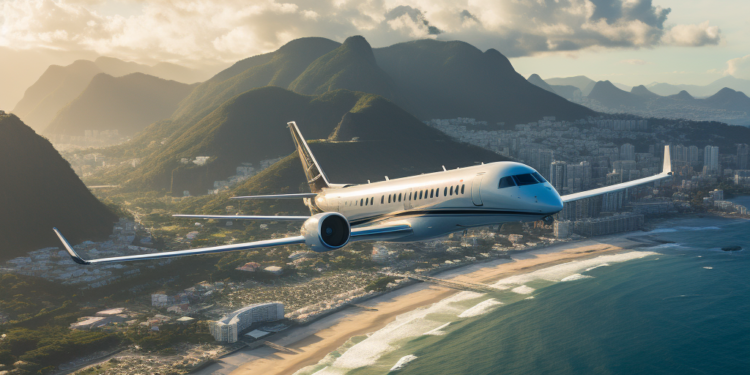Brazil Changes Nav Fee & Permit Rules

Recently, Brazil has changed how the country calculates navigation fees for Part 121/129/135 operators and permit rules for charter operators.
Here’s what you need to know.
Brazil Navigation Fee Changes for Part 121/129/135 Operators
The Department of Airspace Control (DECEA) in Brazil is revamping the way navigation fees are calculated for Part 121/129/135 Operators. The objective is to improve both clarity and accuracy in fee assessment. This overhaul is currently in progress and will be gradually implemented across all Brazilian airports. A definitive deadline for this transition is yet to be set.
New Fee Structure
Going forward, DECEA will levy navigation fees directly, separating them from existing Airport fees. In turn, airports will only charge for Landing, Parking, and Facility fees. This separation aims to streamline the fee process and enhance transparency.
Implementation Timeline
The new method is already in effect and is being progressively implemented across all airports. Although the exact timeline for complete implementation hasn’t been confirmed, the rollout has begun.
How to Access and Pay Invoices Under the New System
Your ground handler will supply you with a hyperlink (details on the timing are yet to be confirmed) to access your invoice and associated bank slip for payment.
According to the latest communication from DECEA/ATAN, they will only accept local payments if accompanied by a Power of Attorney (POA) letter designating the local representative in Brazil. This representative, as specified, must be the legal representative for the company operating under Part 135 regulations.
Despite our persistent efforts to engage in meaningful dialogue and provide clarification, DECEA/ATAN maintains a firm stance. They categorize any company filing a flight plan with a call sign as an airline, thus imposing the POA requirement.
This understanding poses a challenge for operators under Part 135. All operators under Part 121/129 or Part 135, utilizing call signs in their flight plans, that all navigation fees payments must be directed to DECEA/ATAN via SWIFT.
Universal Aviation Brazil or your handler will direct you to a link to the DECEA/ATAN website so you can register and pay your fees. Landing and parking fees are not impacted and can still be paid by your handler.
Brazil Part 135 Flight Rules Changes
The Brazilian National Civil Aviation Agency (ANAC) has announced updates to the Part 135 Flight Rules in Brazil. Now, permits issued by ANAC for Part 135 operations allow for multiple entries into Brazil and have a validity period of 60 days.
These changes aim to streamline procedures and prioritize safety in Part 135 operations. For more information on these updates and to ensure your operation is compliant, contact us today.
Documentation Requirements & Penalties
It is essential that the documentation for the aircraft, pilots, and worldwide insurance is valid for the operating period in Brazil.
Operating with an expired permit due to inadequate documentation can be dangerous and result in severe penalties. Furthermore, missing the deadline for a permit extension can lead to unwanted interruptions in operations.
Permit Extensions
ANAC also permits the extension of the permit’s validity period every 60 days, provided that all requirements, including the validity of worldwide insurance, continue to be met.
Conclusion
Operators flying to Brazil should be vigilant about several key changes affecting their operations. First, navigation fees are undergoing a significant overhaul; they are now separate from airport fees and will be directly managed by DECEA for part 121/129/135 Operators. Stay alert for hyperlinks from your ground handlers for invoice access and payments.
Secondly, modifications to Part 135 Flight Rules now allow for multiple entries into Brazil with a 60-day permit validity. Extensions of these permits are also available every 60 days, subject to meeting all requirements, including the validity of worldwide insurance.
Failing to comply with these changes, especially due to outdated documentation, can result in severe penalties and operational interruptions. It’s essential to ensure all documentation, ranging from aircraft to pilot certifications and worldwide insurance, is current.
To stay compliant and capitalize on these regulatory updates, maintain close communication with your ground handlers and aviation authorities.




